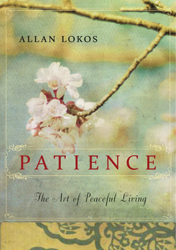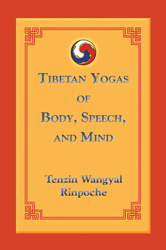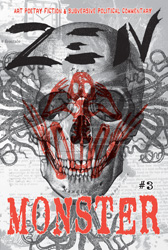 The central message of Jack Kornfield’s Bringing Home the Dharma: Awakening Right Where You Are (Shambhala Publications, 2011, $24.95, cloth, 304 pp.) is that every part of your life is sacred. Accordingly, Kornfield offers readers teachings on all sorts of different topics: parenting, engaging in politics, sexuality, drug use, forgiveness among them. “All aspects of life are your field of practice,” he writes, “the precise place to find freedom and compassion.” Kornfield doesn’t suggest getting off the cushion entirely, however, and the book begins by reviewing the merits of mindfulness and ends with basic meditation instructions. In other chapters, Kornfield reflects on his early years as a monastic in Thailand, celebrates the lessons of some of his teachers and friends—Ajahn Chah, Dipa Ma Barua, and Chögyam Trungpa Rinpoche—and considers the ups and downs of establishing the dharma in the West. After more than 40 years of committed study and practice, Kornfield is at his best when he describes the qualities of spiritual maturity. “To mature spiritually is to let go of rigid and idealistic ways of being and discover a flexibility and joy in our life. One becomes more comfortable with paradox, more appreciative of life’s ambiguities, its many levels and inherent conflicts.”
The central message of Jack Kornfield’s Bringing Home the Dharma: Awakening Right Where You Are (Shambhala Publications, 2011, $24.95, cloth, 304 pp.) is that every part of your life is sacred. Accordingly, Kornfield offers readers teachings on all sorts of different topics: parenting, engaging in politics, sexuality, drug use, forgiveness among them. “All aspects of life are your field of practice,” he writes, “the precise place to find freedom and compassion.” Kornfield doesn’t suggest getting off the cushion entirely, however, and the book begins by reviewing the merits of mindfulness and ends with basic meditation instructions. In other chapters, Kornfield reflects on his early years as a monastic in Thailand, celebrates the lessons of some of his teachers and friends—Ajahn Chah, Dipa Ma Barua, and Chögyam Trungpa Rinpoche—and considers the ups and downs of establishing the dharma in the West. After more than 40 years of committed study and practice, Kornfield is at his best when he describes the qualities of spiritual maturity. “To mature spiritually is to let go of rigid and idealistic ways of being and discover a flexibility and joy in our life. One becomes more comfortable with paradox, more appreciative of life’s ambiguities, its many levels and inherent conflicts.”
 We’ve all been told that patience is a virtue, but how many of us know how to cultivate it? Allan Lokos’s Patience: The Art of Peaceful Living(Tarcher/ Penguin, 2012, $14.95, paper, 240 pp.) provides practical methods to help develop genuine, open-minded patience. “Patience is born when we create a pause between our experience of a feeling and our response to that feeling,” Lokos writes. “Forgiveness has space to develop; fires have a chance to cool.” Mindfulness is an important tool for creating that space, and Lokos takes time to explore this theme in depth. To illustrate his points, Lokos also tells the personal stories—“Profiles in Patience”—of people he met during the writing of the book who have demonstrated extraordinary depths of patience, especially in trying circumstances. “When we lose patience it is because of how we experience a situation or event,” he writes. “It is not because of the situation or event itself.” As the founder of New York’s nonsectarian Community Meditation Center and an interfaith minister, Lokos directs his book to non-Buddhist readers as well as practitioners. “There is no question in my mind that the most impatient among us can, with calm effort and determination, overcome anger and impatience and lead happier, more satisfying lives.”
We’ve all been told that patience is a virtue, but how many of us know how to cultivate it? Allan Lokos’s Patience: The Art of Peaceful Living(Tarcher/ Penguin, 2012, $14.95, paper, 240 pp.) provides practical methods to help develop genuine, open-minded patience. “Patience is born when we create a pause between our experience of a feeling and our response to that feeling,” Lokos writes. “Forgiveness has space to develop; fires have a chance to cool.” Mindfulness is an important tool for creating that space, and Lokos takes time to explore this theme in depth. To illustrate his points, Lokos also tells the personal stories—“Profiles in Patience”—of people he met during the writing of the book who have demonstrated extraordinary depths of patience, especially in trying circumstances. “When we lose patience it is because of how we experience a situation or event,” he writes. “It is not because of the situation or event itself.” As the founder of New York’s nonsectarian Community Meditation Center and an interfaith minister, Lokos directs his book to non-Buddhist readers as well as practitioners. “There is no question in my mind that the most impatient among us can, with calm effort and determination, overcome anger and impatience and lead happier, more satisfying lives.”
Bön master Tenzin Wangyal Rinpoche’s Tibetan Yogas of Body, Speech, and Mind (Snow Lion Publications, 2011, $18.95, paper, 230  pp.) shows readers a variety of teachings and practices related to these “three doors to enlightenment.” Among highlights are: Dzogchen practices to achieve “the body of light,” mantras that provide healing through sounds, and energy practices to enhance clarity of mind. Some of the most compelling reading is provided by his discussion of sound. A chapter on speech includes teachings that range from the readily accessible (“When speech becomes more integrated with awareness, everything you say becomes a form of spiritual practice”) to the esoteric (“you can also try to cultivate awareness of the subtle vibration underlying your speech and of how your speech manifests from there. Is your voice creating the right energy field?”) While Tenzin Wangyal encourages the reader to be skillful when deciding which practices we should use—“choosing the right door”—he is also careful to remind us that body, speech, and mind are closely related. Unfortunately, the way we often sense their connection is through pain. “Whether physically, energetically, or psychologically, we experience ourselves mainly through our pain,” Rinpoche writes. “And because it is so familiar, it becomes an important door through which we discover our bigger self—and through this discovery, release our pain.”
pp.) shows readers a variety of teachings and practices related to these “three doors to enlightenment.” Among highlights are: Dzogchen practices to achieve “the body of light,” mantras that provide healing through sounds, and energy practices to enhance clarity of mind. Some of the most compelling reading is provided by his discussion of sound. A chapter on speech includes teachings that range from the readily accessible (“When speech becomes more integrated with awareness, everything you say becomes a form of spiritual practice”) to the esoteric (“you can also try to cultivate awareness of the subtle vibration underlying your speech and of how your speech manifests from there. Is your voice creating the right energy field?”) While Tenzin Wangyal encourages the reader to be skillful when deciding which practices we should use—“choosing the right door”—he is also careful to remind us that body, speech, and mind are closely related. Unfortunately, the way we often sense their connection is through pain. “Whether physically, energetically, or psychologically, we experience ourselves mainly through our pain,” Rinpoche writes. “And because it is so familiar, it becomes an important door through which we discover our bigger self—and through this discovery, release our pain.”
 Zen Monster is a new-ish magazine (it first appeared in 2008 but only recently released its third issue) with the following manifesto: “We commit ourselves to art, poetry, fiction, and subversive political commentary by buddhist, non-buddhist and trans-buddhist writers, artists, and essayists.Zen Monster is committed to mature achievements, beginnings, half-steps, younger artists, older artists, and any ‘fumblings by the way.’” Then, tacked on at the end, a quasi-mission statement: “No inherent limits.” Zen Monster #3 is just as funky, passionate, and raw as the first two issues. Norman Fischer, a contributing editor to Zen Monster, is the subject of a killer interview about writing poetry, “For the Poem Itself: A Language View.” Brad Warner tackles the Genpo Roshi sex scandal in his essay “How to Make a Zen Monster.” Diane DiPrima provides a number of poems dedicated to the memory of Philip Whalen. Zen Monster is edited by Brian Unger, a Ph.D. candidate in English and American Literature at the Graduate Center of the City University of New York. Copies are hard to find, so if you spot one, grab it, or order one at spdbooks.org.
Zen Monster is a new-ish magazine (it first appeared in 2008 but only recently released its third issue) with the following manifesto: “We commit ourselves to art, poetry, fiction, and subversive political commentary by buddhist, non-buddhist and trans-buddhist writers, artists, and essayists.Zen Monster is committed to mature achievements, beginnings, half-steps, younger artists, older artists, and any ‘fumblings by the way.’” Then, tacked on at the end, a quasi-mission statement: “No inherent limits.” Zen Monster #3 is just as funky, passionate, and raw as the first two issues. Norman Fischer, a contributing editor to Zen Monster, is the subject of a killer interview about writing poetry, “For the Poem Itself: A Language View.” Brad Warner tackles the Genpo Roshi sex scandal in his essay “How to Make a Zen Monster.” Diane DiPrima provides a number of poems dedicated to the memory of Philip Whalen. Zen Monster is edited by Brian Unger, a Ph.D. candidate in English and American Literature at the Graduate Center of the City University of New York. Copies are hard to find, so if you spot one, grab it, or order one at spdbooks.org.
Thank you for subscribing to Tricycle! As a nonprofit, we depend on readers like you to keep Buddhist teachings and practices widely available.